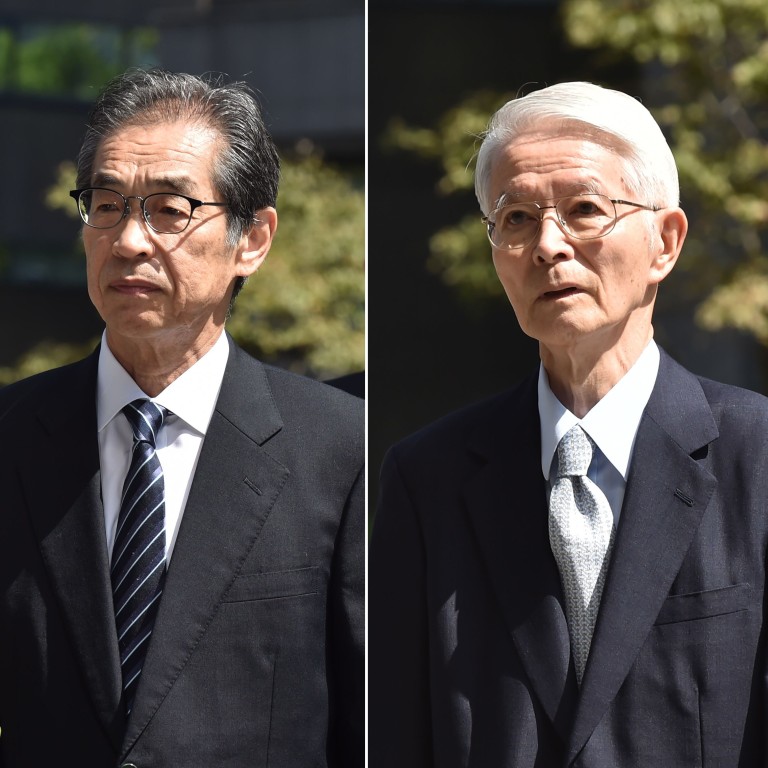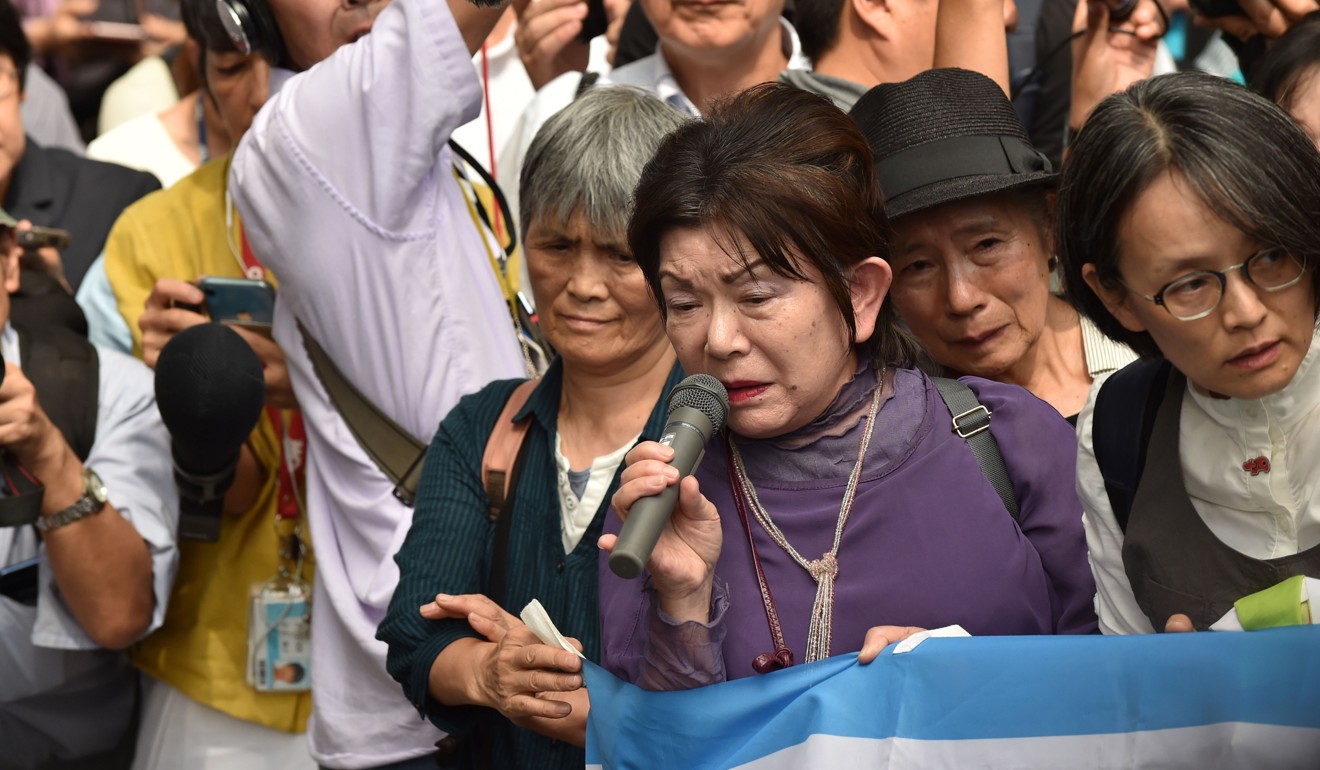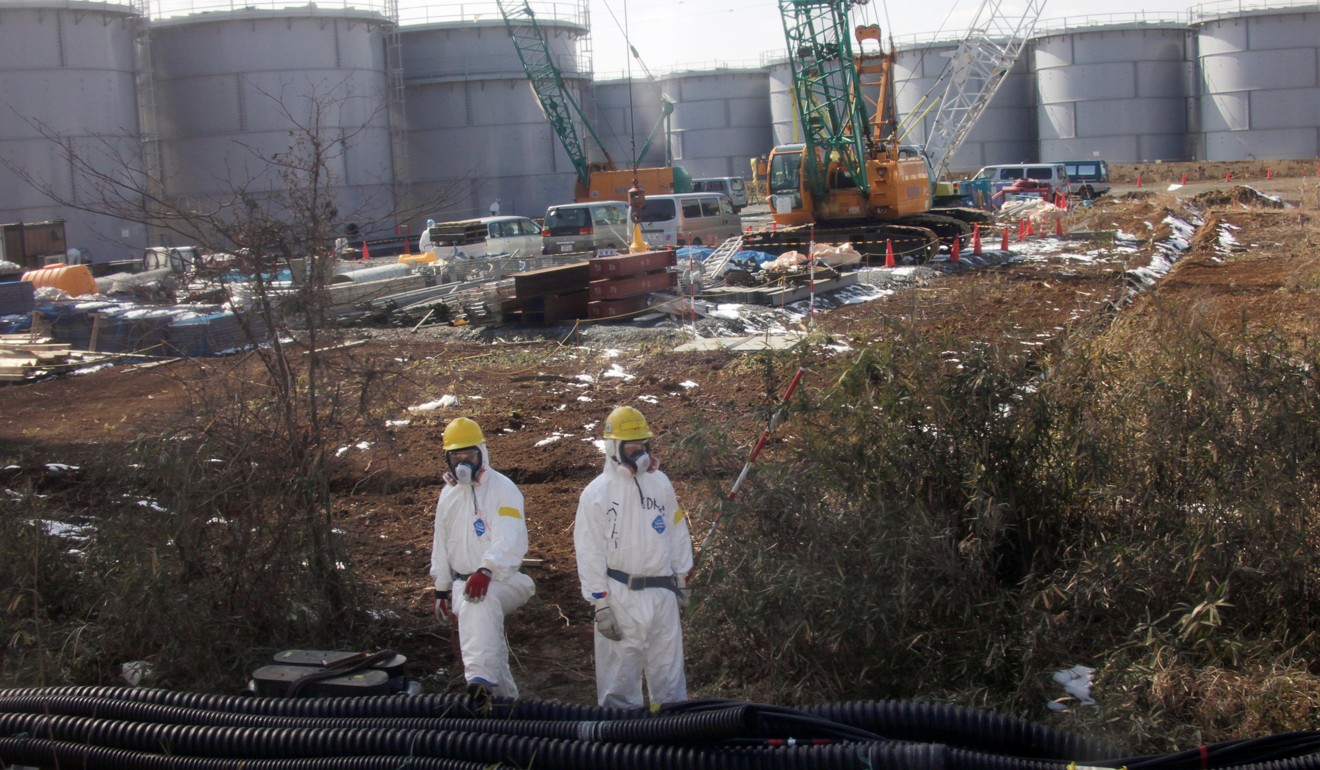
Japanese court acquits former Tepco bosses over Fukushima disaster
- The three former executives had faced up to five years in prison if convicted of professional negligence resulting in death and injury
- The three men were the only people to face criminal prosecution over the worst nuclear accident since Chernobyl
At the Tokyo District Court, former Tepco chairman Tsunehisa Katsumata, 79, along with former vice presidents Ichiro Takekuro, 73, and Sakae Muto, 69, had argued they could not have foreseen the massive tsunami that crippled the Fukushima Daiichi power plant and caused core meltdowns.
In the first and only criminal trial over the nuclear crisis, the three were indicted for failing to implement tsunami countermeasures leading to the deaths of 44 people – including patients forced to evacuate from a hospital – as well as injuries to 13 people in hydrogen explosions at the plant.
“It would be impossible to operate a nuclear plant if operators were obliged to predict every possibility about a tsunami and take necessary measures,” Presiding Judge Kenichi Nagafuchi said in handing down the ruling.

Court-appointed lawyers acting as prosecutors had called for five-year prison terms for the three, claiming they would have prevented the nuclear disaster if they had fulfilled their responsibility to collect information and implement safety measures.
Cries were heard among disaster victims and others gathered in front of the district court when a placard was raised with the words “All found not guilty. Unjust ruling”. Many people had assembled to hear the verdict, with 835 queuing for the 45 seats in the court that were open to the public.
New environment minister Shinjiro Koizumi says Japan should scrap nuclear reactors after Fukushima
“The trial revealed Tepco’s management practice, which has neglected safety measures. It was a man-made disaster,” said Ryoko Kato, a 67-year-old resident of Osaka Prefecture.
The three men were charged in 2016 with professional negligence resulting in death and injury by the court-appointed lawyers after an independent panel of citizens mandated indictment.

The panel’s decision came after Tokyo prosecutors twice decided not to charge the men over the world’s worst nuclear crisis since the 1986 Chernobyl disaster.
The trial focused on whether the former executives should have foreseen the massive tsunami and prevented the accident, given that it was calculated tsunami waves of up to 15.7 metres could strike the Fukushima plant based on the government’s long-term evaluation of quake risks in 2002. The estimate was reported to Tepco in 2008.
The defence team argued the three could not have envisaged tsunami waves on the scale of those that hit the plant based on the government evaluation – which the former executives considered unreliable – and said installing coastal levees would not have prevented the disaster.

Regarding the government’s quake estimate, the ruling said, “It is difficult to say there were sufficient grounds”, adding, the three executives were not specifically aware of the possibility that a tsunami exceeding the 10-meter-elevation of the plant premises could strike.
“We once again offer our sincerest apologies for causing great trouble and worries to many people, including people in Fukushima Prefecture,” Tepco said in a statement after the ruling.
“Starting with Fukushima’s reconstruction, we are putting all efforts” into providing compensation for damage related to the disaster, decommissioning work and decontamination, the utility said, adding it is determined to reinforce safety measures at nuclear power plants.
On March 11, 2011, the six-reactor plant on the Pacific coast was flooded by tsunami waves exceeding 10 meters triggered by the magnitude 9.0 quake, causing the reactor cooling systems to lose their power supply.
Nos. 1 to 3 reactors subsequently suffered core meltdowns, while hydrogen explosions damaged the buildings housing the Nos. 1, 3 and 4 units. Around 160,000 people were evacuated at one point.
Apart from the criminal trial, some rulings in around 30 damages suits filed by disaster victims seeking compensation from the state and Tepco have determined that the utility could have predicted the tsunami and prevented the disaster.

In the first such civil ruling in March 2017, the Maebashi District Court said the government’s quake estimate was “reasonable” and acknowledged Tepco could have avoided the disaster if it had taken appropriate measures.
“The criminal trial was challenging because it required specific predictability and strict evidence without any doubt,” said Tsutomu Yonekura, the chief secretary of a group of lawyers representing victims of the Fukushima nuclear disaster.
“However, even if (the executives) were found not guilty, it doesn’t mean the company escapes its responsibility to compensate,” Yonekura said.

